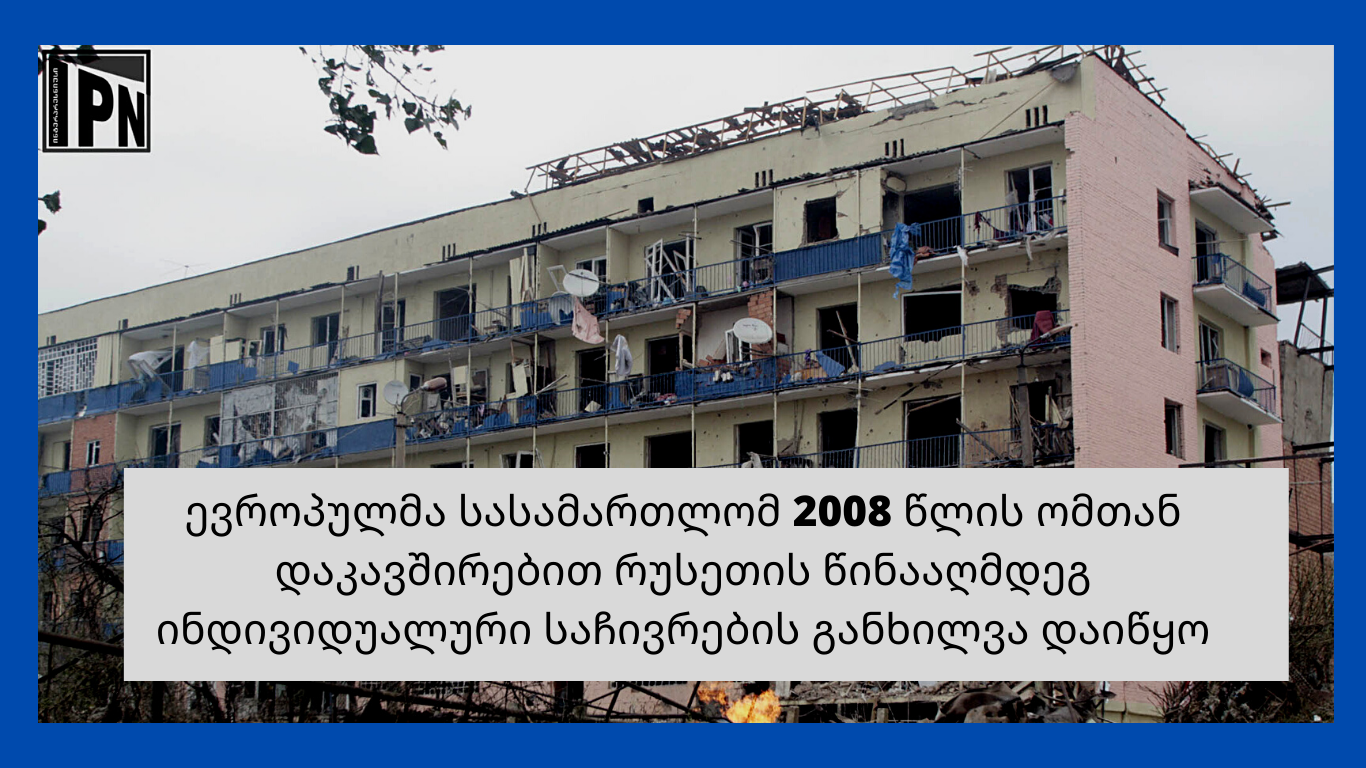NEWS

As it is known to the public, the Georgian Young Lawyers' Association represents more than 350 victims of the August 2008 war before the European Court of Human Rights. GYLA has filed a total of 53 complaints concerning the violation of various rights under the European Convention by the Russian Federation during the war.
On 7 February 2022, according to a communication received from the European Court of Human Rights, the Court began considering the merits of individual applications concerning the 2008 war. In particular, the Court put questions to the Russian Federation regarding 59 individually submitted applications (Jioshvili v. The Russian Federation and 58 other applications). Among the cases under consideration are 12 applications sent by GYLA concerning the protection of the interests of 78 people.
According to the Court letter, the Russian Federation has to answer questions before the European Court until May 2nd, 2022, as to whether the following articles have been violated towards the applicants - Article 8 of the Convention (right to privacy and family life); Article 1 of Protocol No. 1 (right to property), Article 2 of Protocol No. 4 (freedom of movement), and, concerning these rights, Article 13 (right to an effective remedy) and Article 14 (prohibition of discrimination). Furthermore, concerning the above articles, the Court will consider whether the applicants have access to their property located in the Occupied Territories and whether the Russian Federation would be held accountable for violating those rights against them.
It should be noted that, as it is known to the public, on January 21, 2021, the Grand Chamber of the European Court of Human Rights announced the Judgment in the interstate case Georgia v. Russia (II) (no. 38263/08), which deals with violations committed by the Russian Federation during the August 2008 war.
The Court in this Judgment, citing reports from various international organizations, noted that most Georgians who had fled their residential homes during the conflict continued to live in Georgian-controlled territory and were not allowed to return to their homes by the de facto governments of South Ossetia and Abkhazia. The fact that the houses of ethnic Georgians were located in an area under effective Russian control and that Russia exercised effective control over the administrative border was sufficient for the Court to establish a jurisdictional nexus between Russian and Georgian citizens (§§ 292-95).
According to the Court, the inability to return to their homes is an administrative practice that continues against Georgians. Consequently, the de facto authorities of South Ossetia and Abkhazia and the Russian Federation, as the State exercising effective control over these territories, are bound by the Convention to allow residents of Georgian descent to return home (§§ 296-301).
GYLA continues to protect the rights of victims in Court and periodically provides information to the public on the progress of cases. For a review of the Judgment of the European Court of Human Rights of 21 January 2021 and the frequently asked questions about it, see In the information document prepared by GYLA.
SHARE: